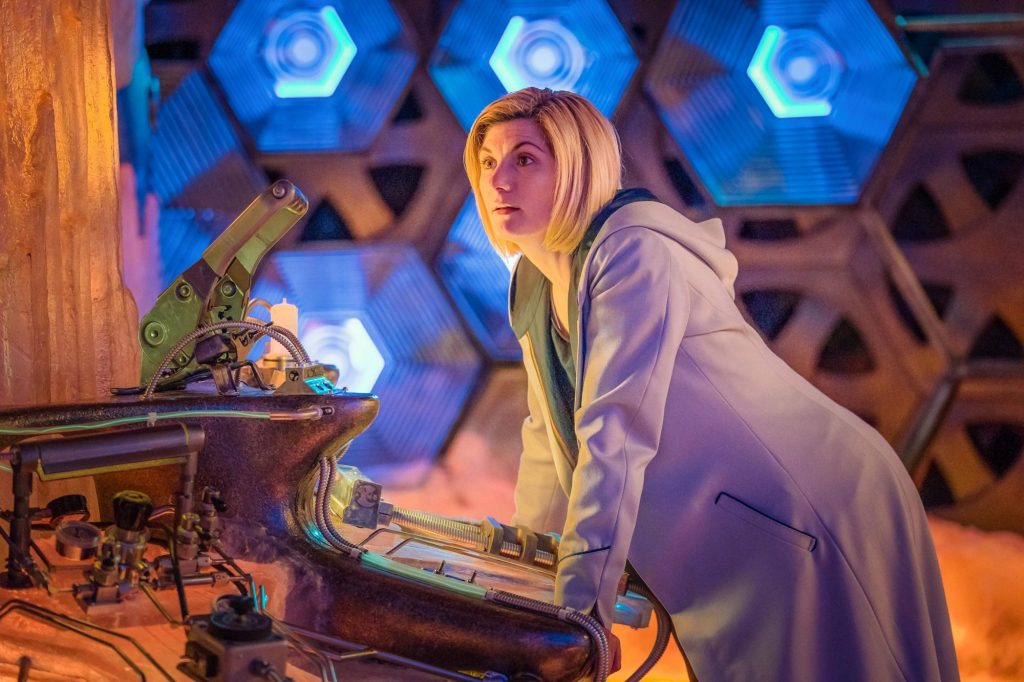Not a great surprise, I’m sure, but I follow a lot of writers on social media. Other authors, screenwriters of television and movies, some game writers, some journalists, an essayist or three. I love reading their random thoughts about writing-related things. Because, as I’ve mentioned here once or thrice or dozens of times, there are always other ways to do things. New angles to approach problems from. Different ways to catch problems before they go too far or grow too big.
And that of course brings us to Q getting punched in the face on Deep Space Nine and Sherlock Holmes living in New York.
There’s a screenwriter named Robert Hewitt Wolfe who (odds are) worked on at least one of your favorite genre shows. A while back on Twitter he did a list of 25 things he’d learned about writing for television. It’s a really fantastic little thread and you should check it out. A bunch of it applies to storytelling in general, not just television.
One particular bit stood out to me. Wolfe mentions giving the good lines to your main characters, not the dayplayers—what you’d probably think of as the guest stars. The folks who are just there on set for a day or two of this particular episode. He also adds on that your main characters should definitely be the ones getting the last line before the show cuts to commercial. Which all makes sense, if you think about it.
But I think this applies in a greater sense, too. My main characters should be the ones doing things. They should get the funny lines, yeah, but they should also be the ones taking the risks. They should be the ones solving deadly puzzles and and capturing the scorpions and working up their courage to ask out Dinah from accounting. Nobody watches a show (or picks up a book) thinking “wow, I hope that cashier is a lot smarter than our protagonist, because there’s no way Yakko’s getting out of this on his own…”
This really sums up what was wrong with so many of the B movies I used to watch during Saturday geekery. They didn’t know who they were supposed to be focused on. They’d give the cool lines, the big fight, the horrifying death, or the dramatic sacrifice to… well, anyone except one of the main characters.
And that means all these things are immediately diminished because they’re not happening to people we care about. I mean, sure, on a basic human level we care that the mutant landshark just chomped Hiker #3 into bloody chunks but honestly… did it get any reaction from you? Maybe a chuckle? Definitely not any concern or horror. Hiker #3 was pretty much just there to die. I mean, if they’d killed Phoebe… holy crap, can you imagine?

Maybe even more to the point, if my supporting characters are the ones being clever, being brave, and getting things done… what are my main characters doing? Are they just standing there being less interesting? Less active? Hell, they’re not even pushing the plot along by dying. If the landshark killed Phoebe, we’d be screwed right now. But Hiker #3? My main characters don’t even know he exists. He’s somewhere on the other side of the forest, barely on the fringes of our story. His death is irrelevant.
And, yeah, sure, maybe it’s an ensemble piece. Maybe I’m writing a huge epic with twenty main characters. My WIP, the thing I’ve been calling GJD, has over half a dozen characters in it I’d consider protagonists. But even then… I’ve got my heroes and I’ve got everyone else. In any given scene, it should be one of said heroes doing things, noticing things, reasoning things out.
It’s not exactly uncommon in my rough drafts to have a scene or a chapter end in a way that just doesn’t feel quite right. Maybe the beat’s there, but it’s just not landing the way I want it to. And more often than not, when I step back and look at it, I realize the problem’s usually that the beat’s landing with the wrong person. I’ve let someone else—someone we’re not invested in—make the big reveal or get in that cool last line.
So as you’re going through your manuscript, take a look at who’s talking. Who’s doing stuff. Who’s drawing the reader’s attention with their dialogue and their actions. Because it should be main characters. Not always, sure, but the majority of the time… yeah. And if it’s not them, maybe I need to reconsider who’s talking. Or who my hero is.
And that’s my last word on this topic.
Next time… be ready for an argument.
Until then, go write.



